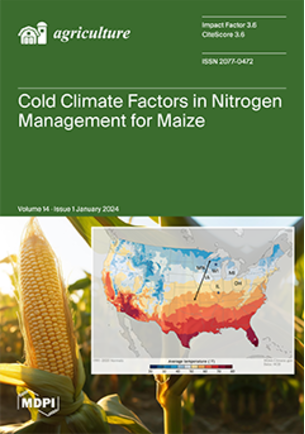Visualizing a Sustainable Future in Rural Romania: Agrotourism and Vernacular Architecture
Q2 Agricultural and Biological Sciences
引用次数: 0
Abstract
In Romania, rural communities grapple with decades of depopulation and economic decline, endangering the natural and cultural richness of their landscapes. The implementation of Romania’s 2030 sustainable development plan presents an opportunity to reverse these trends by merging economic and community development with cultural preservation. This paper examines the potential for creating new livelihood opportunities through a program that integrates sustainable agrotourism with culturally appropriate vernacular architecture in Romania’s distinct rural regions. Focusing on two such regions characterized by significant rural population decline yet endowed with ecological services capable of supporting a diverse rural economy, we collaborated with an architect and landscape engineer to devise three specific and detailed agritourist housing scenarios. These scenarios draw upon local architectural forms harmonious with the vernacular landscape, providing accommodations for agrotourism guests and facilitating craft workshops for visitors interested in rural crafts and traditions. We evaluated the cultural appropriateness of the architectural designs through a social survey and assessed the broader social utility of the development plan via an expansive cost–benefit analysis, treating the project’s sustainability features as quasi-public goods. Such interdisciplinary endeavours are essential for effectively bridging conceptually driven social analysis with pragmatic design and planning strategies, essential for achieving sustainable futures for rural communities and landscapes, as exemplified by rural Romania.罗马尼亚农村地区可持续未来的可视化:农业旅游与乡土建筑
在罗马尼亚,农村社区数十年来人口减少、经济衰退,危及其丰富的自然和文化景观。罗马尼亚 2030 年可持续发展计划的实施为通过将经济和社区发展与文化保护相结合来扭转这些趋势提供了机遇。本文探讨了在罗马尼亚各具特色的农村地区,通过一项将可持续农业旅游与文化适宜的乡土建筑相结合的计划,创造新的谋生机会的潜力。我们与建筑师和景观工程师合作,设计了三个具体而详细的农业旅游住房方案。这些方案借鉴了与乡土景观相协调的当地建筑形式,为农业旅游客人提供住宿,并为对乡村手工艺和传统感兴趣的游客举办手工艺讲习班提供便利。我们通过社会调查评估了建筑设计的文化适宜性,并通过广泛的成本效益分析评估了开发计划更广泛的社会效用,将项目的可持续性特征视为准公共产品。这种跨学科的努力对于有效衔接概念驱动的社会分析与务实的设计和规划战略至关重要,对于实现罗马尼亚农村社区和景观的可持续未来至关重要。
本文章由计算机程序翻译,如有差异,请以英文原文为准。
求助全文
约1分钟内获得全文
求助全文
来源期刊

Agriculture
Agricultural and Biological Sciences-Horticulture
CiteScore
1.90
自引率
0.00%
发文量
4
审稿时长
11 weeks
期刊介绍:
The Agriculture (Poľnohospodárstvo) is a peer-reviewed international journal that publishes mainly original research papers. The journal examines various aspects of research and is devoted to the publication of papers dealing with the following subjects: plant nutrition, protection, breeding, genetics and biotechnology, quality of plant products, grassland, mountain agriculture and environment, soil science and conservation, mechanization and economics of plant production and other spheres of plant science. Journal is published 4 times per year.
 求助内容:
求助内容: 应助结果提醒方式:
应助结果提醒方式:


